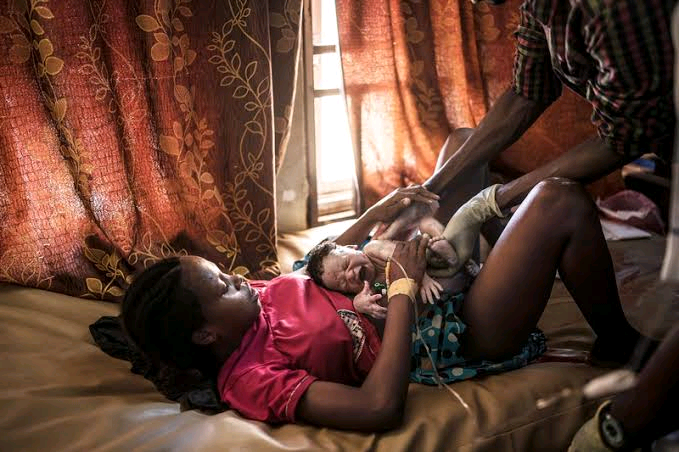Childbirth practices in Nigeria vary between urban and rural areas, traditional and modern medicine, and among ethnic and religious groups. As the most populous country in Africa, Nigeria has one of the highest fertility rates, with an estimate of 9.22 million births annually. The country faces significant challenges in maternal and child health, accounting for approximately 20% of global maternal deaths.
Cultural practices Traditional beliefs and practices play a significant role in childbirth across Nigeria. In many rural areas, women rely on Traditional Birth Attendants (TBAs) who offer culturally accepted methods and home delivery services. Herbal remedies, spiritual rituals, and postnatal confinement are common among various ethnic groups. In contrast, urban areas show an increasing reliance on hospital births and trained midwives. However, traditional beliefs may still influence decision-making around antenatal care and delivery location.
Healthcare access and facilities The Nigerian healthcare system comprises public and private sectors, but access to quality maternal care is uneven. Urban centers tend to have better-equipped hospitals, trained professionals, and emergency services, while rural communities often lack such infrastructure. Efforts to promote Skilled Birth Attendance (SBA) and Emergency Obstetric and Newborn Care have had limited reach, particularly in northern regions. Poverty, transportation challenges, and low health literacy contribute to delays in seeking and receiving care.
Government policies and initiatives Several initiatives have aimed to reduce maternal and infant mortality:
National Health Policy: Promotes reproductive health services and access to skilled healthcare workers. Midwives Service Scheme (MSS): Launched in 2009 to deploy midwives to rural communities. Basic Healthcare Provision Fund (BHCPF): Seeks to improve funding for primary healthcare, including maternal care. International bodies such as the WHO, UNICEF, and UNFPA collaborate with Nigeria to strengthen maternal health outcomes.
Challenges Despite progress, childbirth in Nigeria is fraught with challenges:
Maternal mortality: Estimated at 512 deaths per 100,000 live births (as of 2020). Infant mortality: High rates, especially in underserved areas. Gender inequality: Limits women's autonomy in health decisions. Inadequate infrastructure: Shortage of hospitals, staff, and essential supplies. Cultural barriers: Preference for traditional methods and skepticism toward modern healthcare.
Improvements and innovations Mobile health (mHealth) platforms, community health extension workers, and maternal education campaigns have shown promise in bridging gaps. Programs like MamaCare, Safe Motherhood Initiative, and others have helped increase awareness of safe delivery practices.
Conclusion Childbirth in Nigeria reflects the broader socio-economic and healthcare disparities within the country. While policy reforms and public health campaigns have made strides, sustained investment and culturally sensitive interventions are necessary to improve maternal and child health outcomes across all regions.
See also Healthcare in Nigeria Reproductive rights in Nigeria
== References ==
